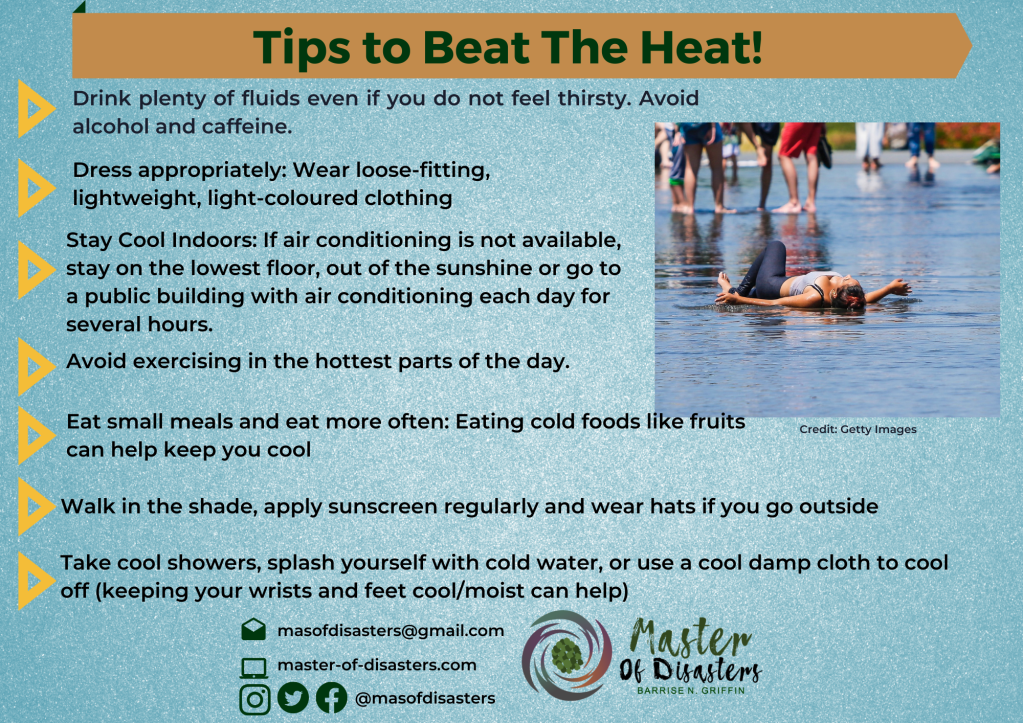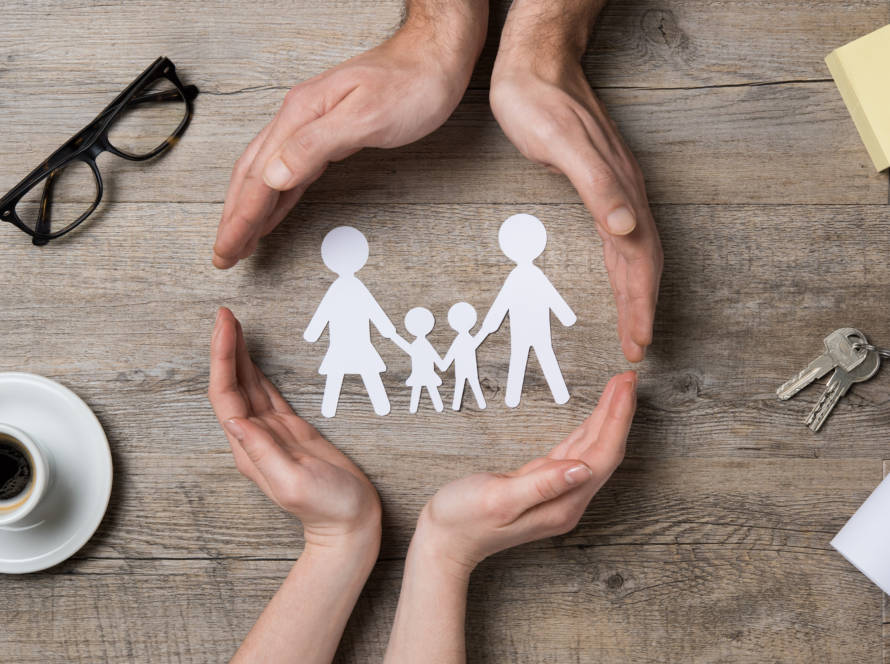Extremely hot weather and Heat Waves can kill. High temperatures are dangerous for everyone.
As we hit our high-heat season in the Caribbean region and in general the Northern Hemisphere, it is useful to understand ways to combat heat related stressors and illnesses to help maintain healthy, functioning body temperatures.
What is Considered Extreme Heat?
This varies greatly by location. Extreme Heat is considered temperatures that are 10 degrees or more above the average high temperature for a region or country, that lasts for a prolonged time period (3 or more days). These temperatures are often accompanied by high humidity. Heat waves are severely dangerous as they can cause or affect health problems for both people and the environment. Examples include respiratory / breathing difficulties, trapping of air pollutants that create toxic air, and higher nighttime temperatures due to concrete and asphalt absorbing heat in the daytime and releasing it at night.
Who is at risk? Everyone.
Heat can push the human body to its limits. In extreme heat and high humidity, bodily evaporation is decreased and the human body must work harder to maintain its normal temperature. But the risk of heat-related illness is especially high for:
Elderly people (especially aged 65 and over) | Pregnant women |
People on medication and chronic health issues, or face drug or alcohol addictions (heat causes irregular body temperatures) | Babies and Young Children |
People who face isolation or live on their own | People with lingering COVID-19 symptoms |
People who work or spend a lot of time outside | Overweight and obese people |
What can happen? In the event of extreme heat, watch out for signs of heat stress, heat exhaustion or heat stroke which include:
| Heat Exhaustion | Heat Stroke |
| – Headache – Body temperature more than 40 degrees Celsius – Muscle cramps – Exhaustion and general weakness. – Nausea and/or vomiting – Dizzy spells – Pale, cool, clammy skin at first, becoming flushed and red later – A rapid, weak pulse. | – Typically no longer sweating. – Red, hot and dry skin. – A body temperature more than 40°C. – A rapid, strong pulse. – Rapid, noisy breathing. – Irrational or aggressive behaviour. – Deterioration of the conscious state. |
If any of these symptoms arise you must begin an active cooling process. This includes going to a cool, shaded area if outdoors, and lying down at total rest. Remove excessive clothing and loosen any tight clothing. Cool by fanning, ice packs or moisten skin if possible with cold water. If they are alert, give them small sips of water. If there are muscle cramps gently stretch the muscles. If unresponsive, unable to drink or condition does not improve, call an ambulance.
Tips to Cope & Keep Cool in the Heat
- Drink plenty of fluids even if you do not feel thirsty. Injury and death can occur from dehydration, which can happen quickly and unnoticed. Avoid drinks with alcohol or caffeine in them.
- Dress appropriately: Wear loose-fitting, lightweight, light-coloured clothing that will cover as much skin as possible.
- Stay Cool Indoors: If air conditioning is not available, stay on the lowest floor, out of the sunshine. If your home does not have air conditioning, go to a public building with air conditioning each day for several hours. Air conditioned locations are the safest places during extreme heat because electric fans do not cool the air. Fans do help sweat evaporate, which gives a cooling effect.
- Walk in the shade, apply sunscreen regularly and wear hats if you go outside.
- Avoid exercising in the hottest parts of the day: Reduce, eliminate or reschedule strenuous activities. High-risk individuals should stay in cool places. Get plenty of rest to allow your natural “cooling system” to work.
- Take cool showers, splash yourself with cold water, or use a cool damp cloth to cool off (keeping your wrists and feet cool/moist can help).
- Eat small meals and eat more often: Eating cold foods like fruits can help keep you cool.
- NEVER leave children or pets alone in closed vehicles.
REMEMBER to check on the elderly and those who live alone during hot weather. Learn about the risk of extreme heat in your area by contacting your local emergency management office or local meteorology office.




